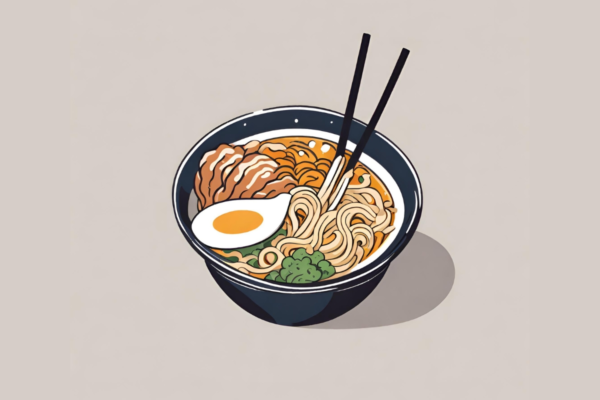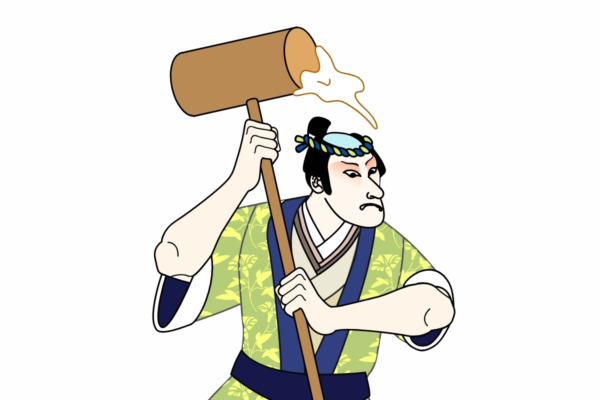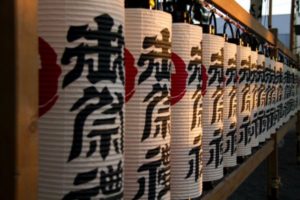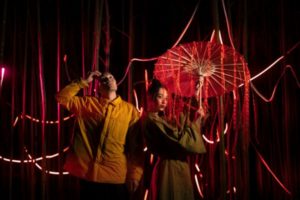In partnership with the Japan Foundation, we’re super excited to announce the Japanese Avant-Garde and Experimental Film Festival of 2021: Bodies. Bodies explores how we interact with other beings, spaces around us, and how expressions of the unutterable become vital means of communication and connection.
This 3rd edition of JEAFF considers the body and sensation, featuring work from directors Kon Ichikawa, Toshio Matsumoto, Susumu Hani, Chiaki Nagano, Takahiko Iimura, Tatsumi Kumashiro, Shuji Terayama, and more.
In a time where words, facts, and logic are increasingly ineffectual, powerless, and absurd, this year’s programme attempts to make sense of the nonsensical. Finding that sometimes, the most powerful form of expression is often what we feel, rather than what we can say, write, or even think.
Inspired by the 2021 Tokyo Olympics, the lockdown, and a loss of “truth,” JAEFF 2021: Bodies presents a line-up of features and shorts that examine the body triumphant, and the body in crisis – through dance, performance, sport, exercise, and more.
Live screenings of JAEFF 2021: Bodies will be held at The Barbican from 16-19th of September 2021
Barbican Screenings

Bodies begins with a bang, with an extremely rare 16mm screening of new wave master Susumu Hani’s endlessly inventive web of young love and seedy underworld forces. This screening features an introduction by Jennifer Coates.
The script penned by avant-garde god Shuji Terayama, Nanami: The Inferno of First Love is arguably Hani’s masterpiece. Ostensibly a tale of a boy meets girl, young goldsmith Shun falls for nude model Nanami. But Hani’s film spirals ever deeper into a hallucinatory howl against a society that neglects, exploits, and abuses young bodies.
A seamless mesh of Hani’s verité style with Terayama’s experimental exuberance, expect to be stunned, troubled, and scorched by the inferno.
Nanami: The Inferno of First Love is paired with Asuka Lin’s post-cyberpunk Super 8 film, A.I. Mama, featuring a young non-binary programmer who attempts to reconnect with their lost mother.

This screening features a video introduction by Michael Sakamoto. The first of our two screenings celebrating butoh co-founders Tatsumi Hijikata and Kazuo Ohno through wildly inventive and highly surreal cinematic works.
Our bodies are in crisis! This Barbican screening brings together Chiaki Nagano and Takahiko Iimura’s collaborations with butoh pioneers Tatsumi Hijikata and Kazuo Ohno. JAEFF attempts to define a dance style that defies the definition.
Beginning with the first entry in Nagano’s Mr O trilogy, viewers will be plunged headfirst into the grotesque absurdities of a form that seeks to “resist fixity”. The unforgettable imagery of Portrait of Mr O is complemented by Takahiko Iimura’s “cinedance” recordings of Hijikata’s early 1960s performances.
Both Anma and Rose Color Dance are efforts to film choreography and to choreograph film. Connecting these works to present-day conceptions of movement, society, and technology is Anne Verheij’s In Passing.

Featuring an introduction by Jasper Sharp Smut or art? Celebrate the 50th anniversary of Nikkatsu’s Roman Porno series of pink films with Tatsumi Kumashiro’s existential shag-a-thon, Lovers are Wet.
Not out of place with the “angry young man” films by Nagisa Oshima and Shuji Terayama, Lovers are Wet depicts the return of a particularly nihilistic native to his seaside village. Working in a local softcore cinema, Katsu refuses to acknowledge his connection to the town and begins a mission of cruel seduction. Kumashiro’s bleak and windswept vision is punctured by humour and depravity and serves as an angry broadside against censorship in Japan.

Featuring a video introduction by Michael Sakamoto Chiaki Nagano and Kazuo Ohno’s trilogy reaches its bewildering and exhilarating conclusion in part two of JAEFF’s butoh screenings. Mr O’s Book of the Dead is a stunning work of surrealism and choreography that evades written summary.
Indeed, according to Ohno: “It is not important to understand what I am doing; perhaps it is better if they don’t understand, but just respond to the dance.”
These classic dance films are complemented by Kioto Aoki’s Dual Enframe, which plays with different iterations of “the framing device,” using the camera, the body, the mirror, and window space.

Featuring an introduction by Julian Ross. Collapsing the line between mainstream sports drama and formal invention, avant-garde hero Shuji Terayama’s Boxer is arguably the greatest boxing film ever made.
Saturday night JAEFF Fight Night! Former champ Hayato (Bunta Sugawara) is washed up and disillusioned. His shot at redemption arrives in the form of young boxer Henma (Kentarô Shimizu) seeking tutelage.
While Boxer contains all the training montages required by the genre, the focus is always on the fluidity, punishment, and dedication of the fighting body. Boxer is preceded by Yuri Muraoka’s kaleidoscopic portrait of the filmmaker and her daughters, Transparent, the world is. A short film depicting the relationship between being and society.
Get to know the Directors

Susumu Hani
Susumu Hani’s career began with adolescent documentaries and evolved to pseudo-documentary dramas, culminating with Nanami, one of the greatest works of Japanese avant-garde cinema, which he co-scripted with Terayama Shūji.
“…when I made it [Inferno of First Love] I never thought it would be such an expression of my own self, but now I see it almost as a direct confession. It really surprises me, since I don’t like confessions. It happened as if against my will.”
Interview conducted by Rea Amit and Alexander Jacoby in May 2009, in Tokyo.

Asuka Lin is a Japanese-Taiwanese filmmaker and visual artist working in Los Angeles, California.
Asuka’s work spans a variety of genres, but her interest in magical realism and fantasy, which are highly influenced by stories of diaspora, trauma, and surrealism, has defined her work. Asuka seeks to expand deep healing and reflection for viewers, while also creating places of empowerment for disadvantaged persons.
“During painful moments of my life, I often turned to fantasy and sci-fi books to escape, finding kinship in these fictional characters that also struggled to survive through painful circumstances. That’s why a lot of my works stem from my love of magical realism”
Interview conducted by Voyage LA

Chiaki Nagano
Chiaki Nagano emerged as one of the preeminent filmmakers in Japan during the 1960s. His memories of World War II inspired him to create surrealistic depictions of ordinary life to explore the unknown.
From 1969 to 1975, Nagano was deeply engaged in filming the art and life of the Butoh dancer Kazuo Ohno. Their collaboration resulted in a film trilogy: Portrait of Mr. O (1969); Mandala of Mr.O (1972); and Book of Dead by Mr. O (1975).
Nagano retired from filmmaking after finishing his last movie, Biography of the Holy Priest Ippen (Shasei IppenShnin den, 1979), and settled in Okinawa as a priest of the Ji School of Pure Land Buddhism.

Takahiko Iimura
Takahiko Iimura is a post-war Japanese filmmaker and pioneer in experimental and independent cinema. Originally from Tokyo, Iimura has built a reputable name in film in the last 50 years.
During the heyday of underground art in the 1960s, Iimura began developing his own experimental films. He was friends with avant-garde artists such as Yoko Ono, painters Genpei Akasegawa and the Ankoku Butoh dancer Tatsumi Hijikata.
Revered for his work, Iimura helped organise the very first experimental film festival in Japan. The “Japan Film Independent” in Tokyo 1964.
“I started my experiments in filmmaking in the early-60s in Tokyo. At the time I was very interested in Dadaist and Surrealist films, which became really important in Japan much later than when these movements actually took place in Europe. It was only from the 50s onwards that we had more information about what was going on in America and Europe; the first impact was for us – and especially for me – the Neo Dadaism.”
Interview conducted by Damien Sanville of Vertigo Mag, in January 2009, New York.

Tatsumi Kumashiro
Tatsumi Kumashiro (1927-1995) was a Japanese director, screenwriter and actor well-known for his critically praised “Roman Porno” flicks. During the 70s & 80s, Kumashiro became the leading Japanese soft-core porn filmmaker. He aimed to make films whose interest went beyond sexual arousal, offer new insight into the debate over screen pornography.
Allmovie calls him, “arguably the most important Japanese director to emerge during the 1970s.”

Eikoh Hosoe
One of the pioneers of Japan’s experimental art movement following World War II. His films typically explored themes such as mortality, sexual fixation, and absurdity.
Over the course of his career, Eikoh Hosoe developed a distinctive style that combined aspects of theatre, dance, film and traditional Japanese art.

Kioto Aoki is an artist and educator who explores patterns of perception as a politics of vision through the physical distinctiveness of the analogue image and image-making process.
Kioto, who was born in Tokyo, is carrying on the artistic family heritage in Chicago as the city’s lone professional taiko performer.

Shuji Terayama
Shuji Terayama (1935-1983) was a Japanese avant-garde poet, playwright, writer, film director, and photographer. Many critics see him as one of Japan’s most prolific and controversial creative artists.
Known for us unusual style. Terayama was a prominent player in the counter-culture movement of the mid-1960s. The emergence of art and self-expression allowed Terayama to convey his sentiments against the post-war society he was living in in a sincere yet harsh way.
“I sometimes wish words could be my friends… you can’t shake hands with words, but they possess a feeling of nostalgic intimacy that even words themselves cannot describe.”

Director, Cinematographer, Production Designer and Poet. Yuri Muraoka, born in 1981, characterises her films, videos, pictures, and writings as “self-portraits,” but more importantly, she depicts the current image of a woman in contemporary Japanese culture.
Music is purposefully used in Transparent the world is to inject a sense of angst and tension. Her film is a family narrative that begins with the sound of rain in the past that concludes with applause for the future.
“Music is a very important element of my films. Chopin’s “Revolutionary” is a metaphor for the modest revolution that happened inside of me. It represents anger and rebellion against the past trauma and oppression and a crazy craving for liberation.”
Interview with Panos Kotzathanasis from Asian Movie Plus, June 9th, 2021.










































